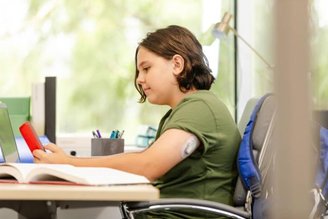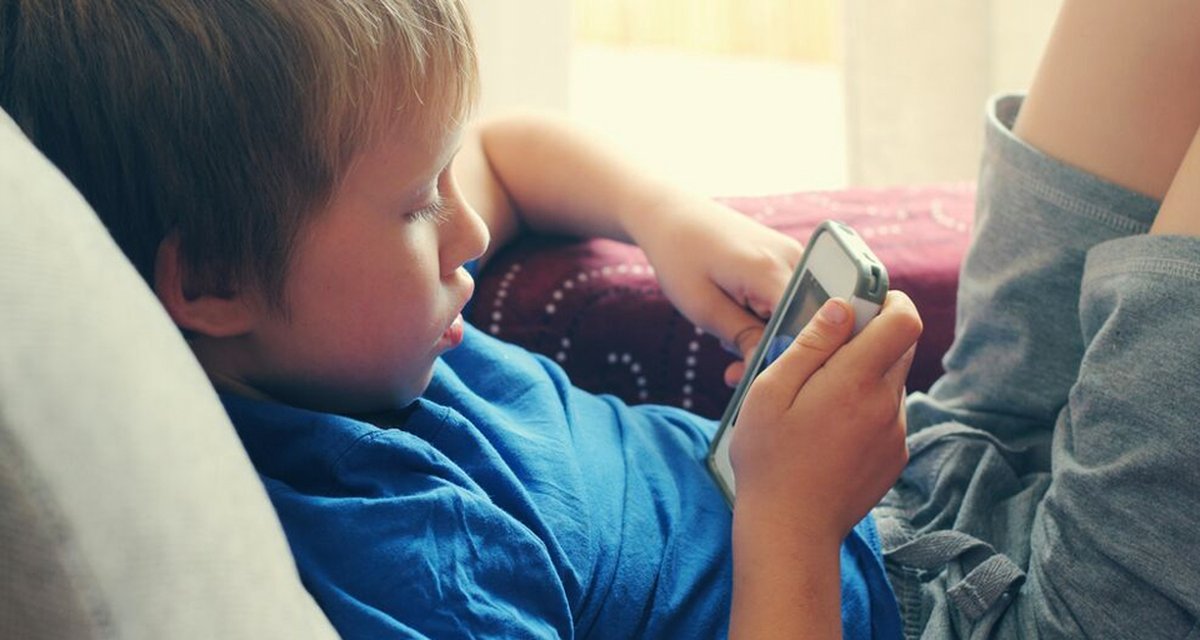Do you allow your young children or other children access to smartphones or tablets? know this This can lead to some developmental problems – if there are no clear restrictions on device use.
A text published on the Federal Government’s website reveals that Brazilians spend an average of 9 hours using the internet on tablets and smartphones. And unfortunately in most cases this includes children, contrary to the instructions of the Brazilian Association of Pediatrics.
According to experts, excessive use of electronic devices in childhood can lead to some complications. Read on to learn more!
How do mobile devices hinder child development?
Below we highlight six ways that overuse of mobile devices can hinder a child’s development. Follow the below:
1. Brain Development Problems
Babies’ brains grow very rapidly in the first few years of life. Thus, when the child reaches the age of 2, the size of his organs triples.
During this period, environmental stimuli, or the lack thereof, are very important in determining how efficient brain development will be.
Some studies show that overexposure to electronics during this period can be harmful and cause:
- lack of attention;
- cognitive delays;
- learning disorders;
- increased impulsivity;
- decreased ability to regulate emotions.
2. Obesity
You may have heard a phrase like this: “21. 21st century children are among the first generation of people who will not outlive their parents.

One of the biggest reasons for this is obesity due to excessive electronic use. It is estimated that children who have devices in their rooms are 30% more likely to be obese than others.
3. Problems with sleep
Continued use of devices can lead to varying degrees of addiction. One of the problems with this is that many children stop sleeping to play games, surf the internet or chat on devices.
In addition to the psychological consequences of this, it should not be forgotten that lack of night sleep can also cause growth problems.
4. Emotional problems
There are studies from different parts of the world that directly link excessive technology use to a range of emotional disorders. Among the most frequently cited by researchers are:
- childhood depression;
- anxiety;
- autism;
- bipolar disorder;
- psychosis;
- problem behavior.
Children tend to repeat the behavior of adults and the characters they see as reference. Later, exposure to games and movies with extreme violence can cause aggression problems also for children up to 12 years old.
5. Digital dementia
Psychologists and pediatricians note that “high-speed multimedia content may contribute to increased attention deficits.”

Additionally, exposure causes concentration and memory problems. This may be due to the reduction of neuronal bands to the frontal cortex, which occurs due to the reason we just mentioned.
How much screen time is recommended for children?
The time children should spend in front of a screen, whether it is a smartphone, tablet, computer or television, is 1 to 2 hours a day, depending on their age.
Child health and development experts recommend: screen time is moderate and adapted to the child’s ageAlso taken into account is the type of content accessed and the balance with other activities that are important for healthy growth.
Guidelines by age group
- Babies (0 to 18 months): According to the Brazilian Pediatric Society (SBP), babies under the age of 2 should avoid using screens except for video calls with family members. Direct contact with parents and caregivers is important for emotional and cognitive development at this stage;
- Children 2 to 5 years old: SBP recommends that screen time for this age group be limited to 1 hour per day, have educational content, and that parents monitor what is watched;
- Children aged 6 and over: There is no specific limit, but the guideline is to keep screen usage moderate. The recommendation is that recreational screen time should not exceed 2 hours per day, always seeking a balance between daily routine and outdoor activities.
In this sense, it is important to know more about parental controls and how to adjust children’s cell phone use. Take the opportunity to share the content with those you know on social networks, and keep an eye on TecMundo for other technology content. Until next time!
****
Text updated by Douglas Vieira on 10/09/2024.
Source: Tec Mundo
I’m Blaine Morgan, an experienced journalist and writer with over 8 years of experience in the tech industry. My expertise lies in writing about technology news and trends, covering everything from cutting-edge gadgets to emerging software developments. I’ve written for several leading publications including Gadget Onus where I am an author.











